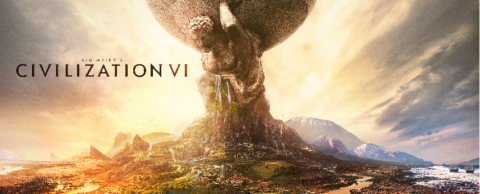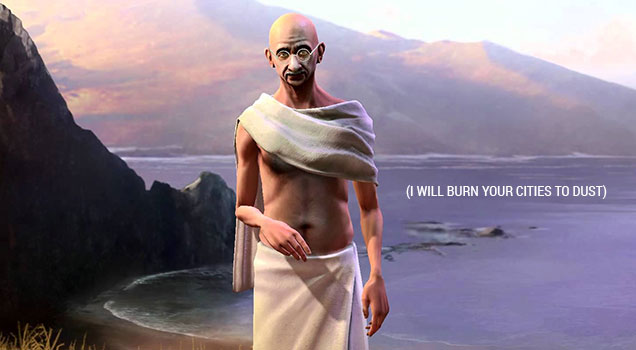Published on 11 Jun 2016
If you are like many people these days, you fawn over the latest episode of The Walking Dead, enjoy movies like the Hunger Games, or lost your mind during Mad Max Fury Road. We seem to think a lot about what the apocalypse for our society might be like. Well, what if the apocalypse already happened… say 3,200 years ago.
Read More:
Dickinson, Oliver (2007). The Aegean from Bronze Age to Iron Age: Continuity and Change Between the Twelfth and Eighth Centuries BC
Cline, Eric H. (2014). 1177 B.C.: The Year Civilization CollapsedStep Back is a history channel releasing videos biweekly that endeavors to go past the names, dates, and battles you might find elsewhere. It invites you to take a step back, consider the past and how it connects to today. We search for the quirky, unconventional, and just plain weird parts of our collective story.
September 3, 2017
The Bronze Age Collapse Explained
August 22, 2017
The Bronze Age Collapse – Lies – Extra History
Published on 12 Aug 2017
How did the Bronze Age Collapse affect civilizations other than the four discussed in our series? When trade fell apart, why didn’t those who relied on bronze switch to forging with other metals? James and Soraya look back on these questions on Lies!
May 17, 2017
Sid Meier interview
Last week, Chris Suellentrop talked to the legendary Sid Meier about the Civilization series and other games:
The first Civilization was released more than a quarter-century ago in 1991, after being developed by a team of two – Meier and Bruce Shelley – that grew to 10 at its largest. Meier estimated recently that the budget for the game was around $170,000. He did the programming, the design, and the artwork. “It was kind of an audacious game for us to make,” Meier said during a talk about the game’s development at this year’s Game Development Conference in San Francisco. “6,000 years of history in 640k.”
The Civilization series has now sold almost 40 million copies, according to Take Two, which owns Firaxis. Sid Meier’s Civilization VI, the most recent entry in the series, was released last year. (Even though Meier’s name is on it, the lead designer was Ed Beach.)
At GDC, Meier talked to Glixel for almost an hour with boyish enthusiasm about what makes Civilization work, why Firaxis turns to a new lead designer with almost every sequel, and that whole thing with having his name on the box.
How did it feel to deliver a postmortem on Civilization at the Game Developers Conference to mark the 25th anniversary of the game’s release?
In between the time Civ 1 came out and now, the Internet appeared, modding appeared, Reddit appeared, mobile appeared. So many things have happened in that time. But it’s all within a lifetime.At Firaxis, Civ has been the pillar of what we do. We’re able to find a freshness in it by bringing in different designers. It’s one of the unique things about Civilization. Each iteration is led by a different person. There’s almost a Civ burnout. Once you’ve done a Civ, you’re kind of burned out and somebody else comes in with some fresh ideas.
[…]
What makes a good Civ game?
What happens in the player’s imagination. What we discovered afterwards, just by luck, kind of, was what fueled this “one more turn” phenomenon was the idea that, in your mind, you were always projecting what was going to happen next and what was going to happen three turns from now, what was going to happen eight turns from now. You had multiple irons in the fire. You were exploring this continent. You were dealing with troublesome neighbors. And you had this wonder that was always about to be built. So you were always anticipating what comes next.A good Civ game has that quality, and it’s based in part on the turn-based nature of it. You have the time to imagine what’s going to happen next. You have the time to project your strategy, your ideas into the future. There’s also the anticipation not only of what you’re about to do but what the game’s about to do to you. Genghis Khan is going to show up. Or they’re going to finish the wonder before you. So there’s all those things that you are looking forward to and anticipating.
October 9, 2016
Tips and tricks for Civilization VI
In PC Gamer, T.J. Hafer offers a few ideas to help you get started in your first few Civilization VI games:
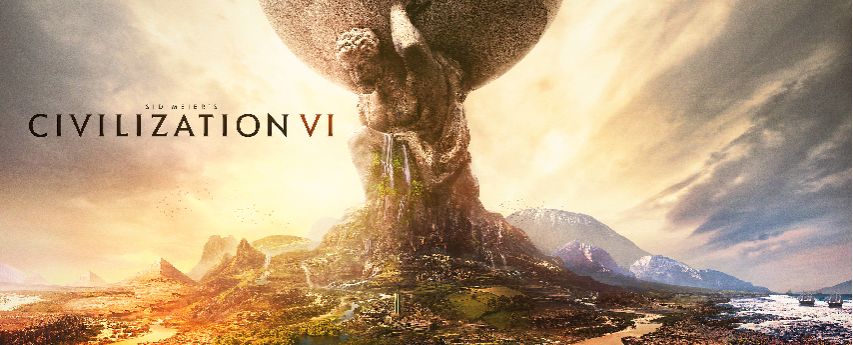
Going from Civ 4 to Civ 5 was probably the biggest step out of the comfy, immortal dictator shoes Sid Meier’s flagship series had ever taken, but Civ 5 to Civ 6 is an even more significant transformation. So whether you’re totally new to this world domination thing or a veteran of weathering Gandhi’s aggressive nuclear policy — along with battling the rest of Civ 6’s leaders — it’s wise to seek some understanding of the basics. There are some tricky concepts to come to terms with a couple layers under what Sean Bean will tell you in the tech pop-ups. And it’s Sean Bean, so you never know when he might get impaled or immolated, leaving us to navigate the winds of time on our own.
[…]
Barbarians have gotten a lot smarter
You know that scene in Jurassic Park where they realize the velociraptors have figured out how to open doors? My first couple encounters with Civ 6’s barbarians were a bit like that. The first barbarian unit you see is probably going to be a scout. And guess what? He’s coming to scope out your city and determine if it’s weak enough to attack. Not only that, but when his friends do arrive, they’re likely to have an intelligent unit composition and an understanding of the terrain similar to a human player.
City centers can’t attack in Civ 6 until walls have been built, so your first couple dozen turns can really put you at the mercy of the barbarians. Don’t wander off too far with your first warrior. I also recommend building at least one more warrior and a slinger very early on — before you even make a second settler. It’s worth it. On the bright side, barbarians are also now smart enough to retreat and lick their wounds if they know they’ve been beaten. So you only really need to kill a little more than half of their raiding party to buy yourself a respite.
Spread your Traders around to build road networks
Since trade routes now automatically generate roads between cities (and this is, in fact, the main way of building roads), you’re going to want to keep re-basing your traders every time their mission expires to add another link to your network until all the cities of your empire are connected. Roads are more important than ever due to the harsh terrain movement changes I discussed with Tom. They can easily be the difference between being able to reinforce a city that’s under siege, and allowing it to fall to friggin’ Saladin and his friggin’ auto-heal overpowered stupid-face Mamluks.
Also, don’t forget to protect your traders passing through the fog of war! I lost two of them to a barbarian scout with one health that I let live after the destruction of his village, thinking he wasn’t worth chasing and wouldn’t be a threat anymore. He apparently learned kung fu and took vengeance for his ancestors, costing me a lot of money, and I wasn’t too happy about it.
October 6, 2016
Civilization VI: What’s New or Changed? [Technology, Civics, Districts, Wonders, etc…]
August 18, 2016
A compendium of available information on Civilization VI
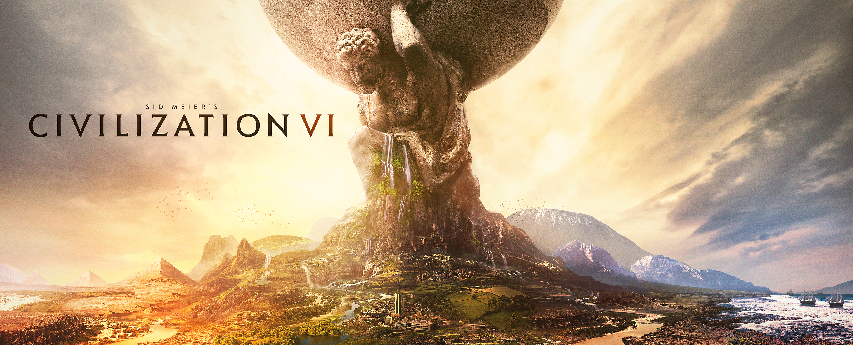
Scott Alexander linked to this site which is compiling links to all of the public information available for the soon-to-be-released game Civilization VI. I’ve pre-ordered my copy, and I’ve been casually following the development process, so I’ll probably be visiting this site pretty regularly.
July 6, 2016
QotD: The treason of the modern intellectuals
The longest-term stakes in the war against terror are not just human lives, but whether Western civilization will surrender to fundamentalist Islam and shari’a law. More generally, the overt confrontation between Western civilization and Islamist barbarism that began on September 11th of 2001 has also made overt a fault line in Western civilization itself — a fault line that divides the intellectual defenders of our civilization from intellectuals whose desire is to surrender it to political or religious absolutism.
This fault line was clearly limned in Julien Benda’s 1927 essay Le trahison des clercs: English “The treason of the intellectuals”. I couldn’t find a copy of Benda’s essay on the Web. but there is an excellent commentary on it that repays reading. Ignore the reflexive endorsement of religious faith at the end; the source was a conservative Catholic magazine in which such gestures are obligatory. Benda’s message, untainted by Catholic or Christian partisanship, is even more resonant today than it was in 1927.
The first of the totalitarian genocides (the Soviet-engineered Ukrainian famine of 1922-1923, which killed around two million people) had already taken place. Hitler’s “Final Solution” was about fifteen years in the future. Neither atrocity became general knowledge until later, but Benda in 1927 would not have been surprised; he foresaw the horrors that would result when intellectuals abetted the rise of the vast tyrannizing ideologies of the 20th century,
Changes in the transport, communications, and weapons technologies of the 20th century made the death camps and the gulags possible. But it was currents in human thought that made them fact — ideas that both motivated and rationalized the thuggery of the Hitlers and Stalins of the world.
Eric S. Raymond, “Today’s treason of the intellectuals”, Armed and Dangerous, 2002-11-28.
May 27, 2016
AI Only Battles, TSL Games, and Nukes in Civ 6 | Civilization 6 Interview!
Published on 25 May 2016
Civ 6 Interview discussing canal cities, graphics, happiness, and more!
Description of Civilization 6 from the Official Website:
“Sid Meier’s Civilization VI is the next entry in the award-winning Civilization franchise, which has sold in nearly 33 million units worldwide, including more than 8 million units of Civilization V.
Originally created by legendary game designer Sid Meier, Civilization is a turn-based strategy game in which you attempt to build an empire to stand the test of time. Become Ruler of the World by establishing and leading a civilization from the Stone Age to the Information Age. Wage war, conduct diplomacy, advance your culture, and go head-to-head with history’s greatest leaders as you attempt to build the greatest civilization the world has ever known.
Civilization VI offers new ways to engage with your world: cities now physically expand across the map, active research in technology and culture unlocks new potential, and competing leaders will pursue their own agendas based on their historical traits as you race for one of five ways to achieve victory in the game.FEATURES
EXPANSIVE EMPIRES: See the marvels of your empire spread across the map like never before. Each city spans multiple tiles so you can custom build your cities to take full advantage of the local terrain.
ACTIVE RESEARCH: Unlock boosts that speed your civilization’s progress through history. To advance more quickly, use your units to actively explore, develop your environment, and discover new cultures.
DYNAMIC DIPLOMACY: Interactions with other civilizations change over the course of the game, from primitive first interactions where conflict is a fact of life, to late game alliances and negotiations.
COMBINED ARMS: Expanding on the “one unit per tile” design, support units can now be embedded with other units, like anti-tank support with infantry, or a warrior with settlers. Similar units can also be combined to form powerful “Corps” units.
ENHANCED MULTIPLAYER: In addition to traditional multiplayer modes, cooperate and compete with your friends in a wide variety of situations all designed to be easily completed in a single session.
A CIV FOR ALL PLAYERS: Civilization VI provides veteran players new ways to build and tune their civilization for the greatest chance of success. New tutorial systems introduce new players to the underlying concepts so they can easily get started.”
May 12, 2016
Civilization VI to be released in October
Firaxis has announced the release date of the next version of Civilization, along with a number of changes to the game that may increase the challenge level (and disrupt the current “meta”):

In many ways, Civilization 6 takes its predecessors and iterates on the systems that have come before. There are changes being made to trade, research, religion and more. Based on the limited amount of information so far released, these changes seem to be incremental.
But there is also a big change coming. In previous Civ games, city improvements were mere statistical boosts or manufacturing gateways, rendered prettily with a slightly different artistic representation. You built a wall and your defenses improved and your city, quite clearly, became encircled by a wall. They lived within the city, outside your control.
Civilization 6 is not the same. It demands that you place your city improvements in geographic locations in hexes around the city, which best take advantage of that building’s boosts and functions.
This means that your city upgrade path is no longer a rote event. It is a matter of geographic practicality.
In Civ 5, combat changed significantly. But combat is merely a system, albeit an important one. In Civ 6, it’s the city itself — the throbbing organ of all Civ games — that is being altered.
The improvements you build in your cities will now actually need to be placed in the tiles surrounding your city and can derive benefits from the terrain if built in better or worse locations. This will probably place an even greater emphasis on finding the best possible spot to found a city, as the long-term growth and development will hinge to a much greater degree on the city’s hinterland than in earlier Civ games.
While I’ve certainly enjoyed the most recent game, I found myself very often following an informal “script” or template when playing Civ V, which Firaxis developers think they’re addressing in the new game:
Why has Firaxis decided to make this change to how cities are structured, to merge the building elements of the city with its surrounding geography?
“We want players to adapt to the map every time they play the game,” says lead designer Ed Beach. “We want people to think on their feet, to respond to being put in different types of terrain, to being put in situations while playing different leaders.”
He says that the “number one” problem the team has identified about Civ 5 is that players often settle on certain strategic paths, and they play the same way every time. For example, when I build cities, I’m almost always looking at Monument, Shrine, Granary, Library, Walls, Coliseum. I rarely change this formula, nor others theirs.
This is why Civ 6‘s cities are different. “It’s as big a change for the economic side of the game as unstacking the armies was with Civ 5,” says Beach. “We want to throw different things at the player at different times and make them have to adapt.”
April 21, 2016
QotD: The amazing (ancient) Greeks
I discovered the Greeks when I was eight, and I came across a copy of Roger Lancelyn-Green’s retelling of The Iliad. I was smitten at once. There was something so wonderfully grand, yet exotic, about the stories. I didn’t get very far with it, but I found a copy of Teach Yourself Greek in the local library and spent weeks puzzling over it. Over the next few years, I read my way through the whole of Greek and Roman mythology, and was drawn into the history of the whole ancient world.
When I was twelve, my classical leanings took me in a new, if wholly predictable, direction. The sexual revolution of the 70s hardly touched most South London schoolboys. The one sex education lesson I had was a joke. Porn was whatever I could see without my glasses in the swimming pool. So I taught myself Latin well enough to read the untranslated naughty bits in the Loeb editions of the classics. The librarians in Lewisham were very particular in those days about what they allowed on their shelves. They never questioned the prestige of the classics, or thought about what I was getting them to order in from other libraries. With help from Martial and Suetonius and Ausonius, among others, I’d soon worked out the mechanics of all penetrative sex, and flagellation and depilation and erotic dances; and I had a large enough fund of anecdotes and whole stories to keep my imagination at full burn all though puberty.
Then, as I grew older, I realised something else about the Greeks — something I’d always known without putting it into words. There’s no doubt that European civilisation, at least since the Renaissance, has outclassed every other. No one ever gathered facts like we do. No one reasoned from them more profoundly or with greater focus. No one approached us in exposing the forces of nature, and in turning them to human advantage. We are now four or five centuries into a curve of progress that keeps turning more steeply upwards. Yet our first steps were guided by others — the Greek, the Romans, the Arabs, and so forth. If we see further than they do, we stand on the backs of giants.
The Greeks had no one to guide them. Unless you want to make exaggerated claims about the Egyptians and Phoenicians, they began from nothing. Between about 600 and 300 BC, the Greeks of Athens and some of the cities of what is now the Turkish coast were easily the most remarkable people who ever lived. They gave us virtually all our philosophy, and the foundation of all our sciences. Their historians were the finest. Their poetry was second only to that of Homer — and it was they who put together all that we have of Homer. They gave us ideals of beauty, the fading of which has always been a warning sign of decadence; and they gave us the technical means of recording that beauty. Again, they had no examples to imitate. They did everything entirely by themselves. In a world that had always been at the midnight point of barbarism and superstition, they went off like a flashbulb; and everything good in our own world is part of their afterglow. Every renaissance and enlightenment we have had since then has begun with a rediscovery of the ancient Greeks. Modern chauvinists may argue whether England or France or Germany has given more to the world. In truth, none of us is fit to kiss the dust on which the ancient Greeks walked.
How can you stumble into their world, and not eventually be astonished by what the Greeks achieved? From the time I was eight, into early manhood, I felt wave after wave of adoration wash over me, each one more powerful than the last.
Richard Blake, “Interview with Richard Blake”, 2014-03-14.
August 13, 2015
The Hockey Stick of Human Prosperity (Everyday Economics 1/7)
Published on 24 Jun 2014
In this series, Professor Don Boudreaux explores the question economists have been asking since the era of Adam Smith — what creates wealth? On a timeline of human history, the recent rise in standards of living resembles a hockey stick — flatlining for all of human history and then skyrocketing in just the last few centuries. Without specialization and trade, our ancient ancestors only consumed what they could make themselves. How can specialization and trade help explain the astonishing growth of productivity and output in such a short amount of time — after millennia of famine, low life expectancy, and incurable disease?
May 8, 2015
QotD: The barbarians in our midst
… possibly the most dangerous barbarians live in the West. These, by being born there, assume they are Westerners by inheritance or osmosis. They also regard Western civilization as “found”, its goodies a stash waiting to be used or distributed. Nor do they trouble themselves as to its provenance, for there has always been plenty more where the stash came from.
For these barbarians Western civilization and its associated quest for God or Truth are a bothersome impediment, a “white man’s culture”, a hundred year old relic ideology nobody bothers with, some irksomely judgmental superfluity that gets in the way of fun and spreading the fruits to arrivals at the border and various victim groups.
For the barbarian the only reality is appearances. Cargo cultists, for instance, believe that function comes from form. If they build something which resembles an airport then gift giving airplanes will arrive there to bring goodies. The 21st century barbarian completely lacks the attitude of Roger Bacon, who lived in the 13th century. Bacon knew that the truth was not a “white man’s” culture — in fact in his day nearly all learning came from the East — but believed the truth was nature’s culture; baked into reality; another word for what used to be called God. Of barbarian ignorance Bacon wrote:
Many secrets of art and nature are thought by the unlearned to be magical. … The empire of man over things depends wholly on the arts and sciences. For we cannot command nature except by obeying her.
In today’s post-Western environment, we’ve forgotten Bacon’s adage.
Richard Fernandez, “Sword and Sorcery”, Belmont Club, 2014-06-23.
November 16, 2014
In Civilization games, Gandhi is the most likely leader to use nukes
In Kotaku, Luke Plunkett explains why of all the AI leaders in the game, none are more likely to espouse the philosophy “nuke ’em ’till they glow, then shoot ’em in the dark” than India’s Gandhi:
In the original Civilization, it was because of a bug. Each leader in the game had an “aggression” rating, and Gandhi – to best reflect his real-world persona – was given the lowest score possible, a 1, so low that he’d rarely if ever go out of his way to declare war on someone.
Only, there was a problem. When a player adopted democracy in Civilization, their aggression would be automatically reduced by 2. Code being code, if Gandhi went democratic his aggression wouldn’t go to -1, it looped back around to the ludicrously high figure of 255, making him as aggressive as a civilization could possibly be.
In later games this bug was obviously not an issue, but as a tribute/easter egg of sorts, parts of his white-hot rage have been kept around. In Civilization V, for example, while Gandhi’s regular diplomatic approach is more peaceful than other leaders, he’s also the most likely to go dropping a-bombs when pushed, with a nuke “rating” of 12 putting him well ahead of the competition (the next three most likely to go nuclear have a rating of 8, with most leaders around the 4-6 region).
Update, 16 November: Fixed the broken link.
September 3, 2014
QotD: The relative size of the Chinese economy, historically speaking
People seem to want to get freaked out about China passing the US in terms of the size of its economy. But in the history of Civilization there have probably been barely 200 years in the last 4000 that China hasn’t been the largest economy in the world. It probably only lost that title in the early 19th century and is just now getting it back. We are in some senses ending an unusual period, not starting one.
Warren Meyer, “It is Historically Unusual for China NOT to be the Largest Economy on Earth”, Coyote Blog, 2014-08-30.
July 4, 2014
Civilization: Beyond Earth release date announced
ZAM.com has the details:
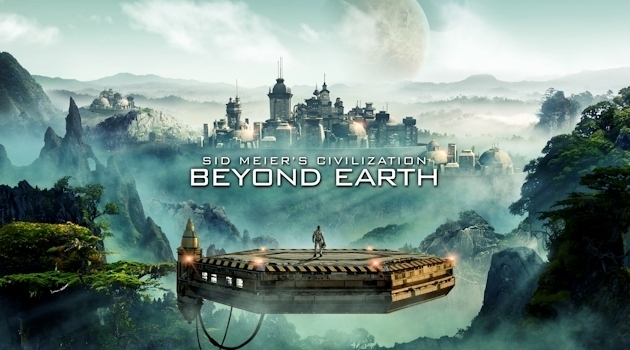
Civilization: Beyond Earth is set to launch worldwide this autumn on October 24, 2014. Pre-ordering via participating retailers will score you a bonus Exoplanets Map Pack on launch day. The map pack includes six custom maps inspired by real exoplanets:
- Kepler 186f: This lush forest planet is one of the oldest known Earth-like planets
- Rigil Khantoris Bb: Orbiting the closest star to our solar system, the historical records of this arid continental planet’s settlement are well-preserved
- Tau Ceti d: This planet of seas and archipelagos features a booming biodiversity and a wealth of resources
- Mu Arae f: Tidally locked in orbit around a weak star, the southern hemisphere of this planet is a blistering desert where the sun never sets, while the northern hemisphere is perpetually in frozen darkness
- 82 Eridani e: An alien world of scarce water and wracked by tectonic forces
- Eta Vulpeculae b: A mysterious new discovery with unknown terrain

